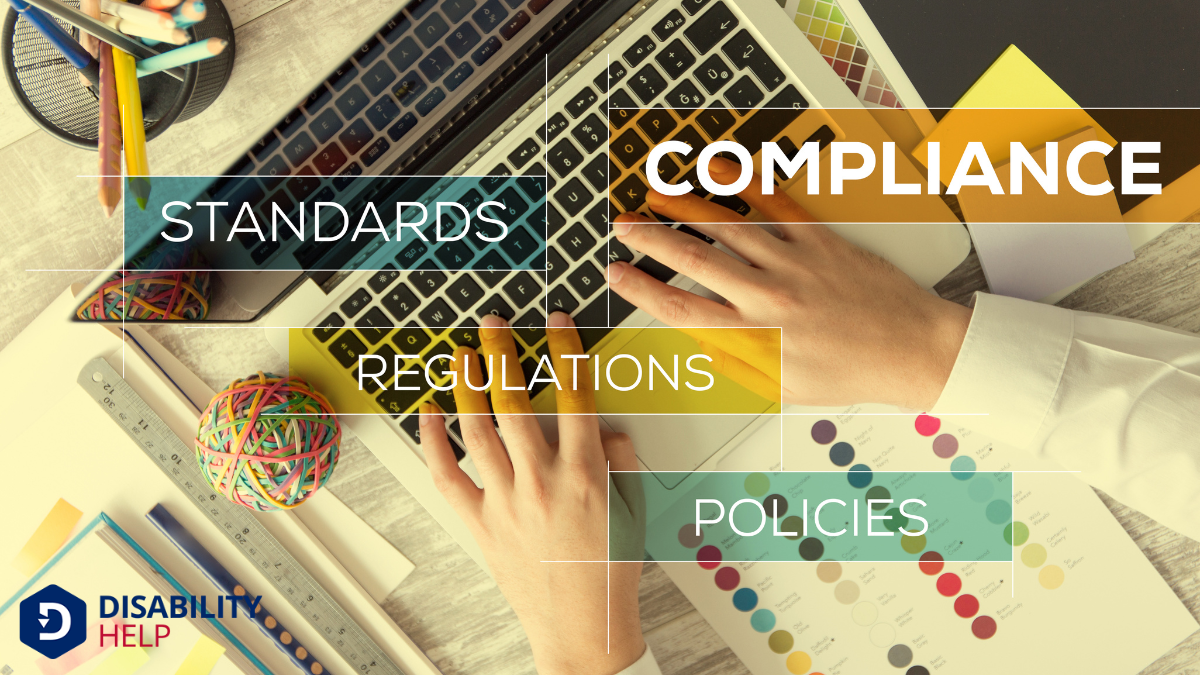As we navigate the ever-expanding world of online education, it's essential to reflect on whether anti-discrimination laws apply to these platforms. We must ask ourselves how these legal frameworks guarantee equitable access and treatment for all learners, regardless of their backgrounds. How do institutions and platform providers uphold these standards in virtual environments? Let's explore the complexities and implications of these laws in digital classrooms, uncovering the responsibilities and challenges they present.
Key Takeaways
- Anti-discrimination laws apply to online education platforms, ensuring equal accessThe principle that all individuals, including those with disabilities, should have equal opportunity... and opportunities for all learners.
- Protected characteristics such as race, gender, and disability must be considered in virtual learning environments.
- Title IXA U.S. law that prohibits sex discrimination in education programs or activities receiving federal f... and the Americans with Disabilities Act promote inclusive and accessible online education spaces.
- Legal precedents highlight the importance of compliance, such as providing captioned videos for accessibilityThe design of products, devices, services, or environments to be usable by people with disabilities.....
- Platform providers must implement features that prevent discrimination and support diverse educational needs.
Understanding the Scope of Anti-Discrimination Laws
Though often overlooked, understanding the scope of anti-discrimination laws is essential for guiding the online education landscape.
We must recognize these laws aren't just confined to physical classrooms; they extend to virtual environments as well. Online platforms have a responsibility to guarantee equal access and opportunities for all learners, regardless of race, gender, disability, or other protected characteristics.
These laws, such as Title IX and the Americans with Disabilities Act, require us to create inclusive learning experiences.
By adhering to these regulations, we help prevent discrimination and foster a supportive educational space.
Let’s make sure our digital classrooms reflect the diversityThe inclusion of individuals from a wide range of backgrounds, including people with disabilities. and equality we champion. Together, we can build a more equitable online education system that respects and values every student's right to learn.
Challenges Unique to Online Education

While anti-discrimination laws lay a strong foundation for equality in online education, we can't ignore the unique challenges that this digital landscape presents.
Online platforms inherently lack the personal interaction found in traditional classrooms, making it harder for instructors to recognize and address subtle biases or discrimination. We also face issues of accessibility; not all students have equal access to technology or a stable internet connection, which can inadvertently create a digital divide.
Additionally, the anonymity of online interactions sometimes fosters environments where discriminatory behavior, such as cyberbullying, can thrive unnoticed. We must also consider how algorithms, used to personalize learning experiences, might unintentionally perpetuate existing biases.
These challenges require our attention and innovative solutions to guarantee true equityFairness and justice in the way people are treated, especially in the allocation of resources and op... in online education.
Legal Precedents in Virtual Learning Environments
As we explore the domain of legal precedents in virtual learning environments, it's essential to understand how these frameworks have evolved to address the complexities of online education.
Digital platforms have redefined traditional learning, necessitating the application of anti-discrimination laws in new contexts. Courts have started interpreting existing laws, like the Americans with Disabilities Act, to include online education, guaranteeing virtual spaces are accessible and equitable.
A significant case involved a university's failure to provide captioned videos, illustrating how legal decisions enforce compliance.
These precedents underscore our responsibility to guarantee fair access and treatment for all students, regardless of their learning environment. Legal frameworks are continuously adapting, guiding institutions to maintain standards that uphold students' rights in the digital sphere.
Accessibility and Inclusivity in Digital Classrooms
Understanding legal precedents sets the stage for our discussion on accessibility and inclusivity in digital classrooms.
As we navigate these virtual spaces, we must ask ourselves how they can cater to diverse learners. Accessibility means ensuring that all students, regardless of physical abilities or learning differences, can engage fully. Inclusivity involves creating an environment where every participant feels valued and supported.
We need to evaluate the tools and resources available to us. Are captions and transcripts provided for video content? Can screen readers access all text and images?
These are just some questions we should be asking. Ensuring accessibility and inclusivity isn't just about meeting legal requirements; it's about fostering a supportive learning environment where everyone has the opportunity to succeed.
Let's make this a shared priority.
The Role of Platform Providers in Ensuring Compliance

Platform providers play an essential role in guaranteeing that digital classrooms meet anti-discrimination laws. We, as users and stakeholders, must recognize our responsibility to create inclusive and accessible platforms.
By designing user-friendly interfaces and incorporating accessibility features, providers can prevent discrimination and foster equal opportunities for all learners.
They should collaborate with educators to understand diverse needs and regularly update their platforms to comply with legal standards. Additionally, offering training sessions for educators on using these tools effectively can help guarantee everyone benefits.
Together, we can hold platform providers accountable for their role in promoting inclusivity. By prioritizing compliance with anti-discrimination laws, they can set a standard for educational equity and accessibility in the digital age.
Frequently Asked Questions
Are International Students Protected Under Anti-Discrimination Laws on Online Platforms?
Let's address whether international students have protection under anti-discrimination laws on online platforms. We must consider specific jurisdictional laws and agreements. We should ascertain that online education providers comply with the guarantee of fair access and equal treatment for all students.
How Do Anti-Discrimination Laws Impact the Use of AI in Online Education?
Anti-discrimination laws guarantee fairness in AI-driven online education by requiring platforms to avoid biases. We should understand that these regulations guide AI development, guaranteeing inclusivity and equal opportunities for all learners regardless of background or identity.
Can Cultural Bias Affect the Enforcement of Anti-Discrimination Laws Online?
Cultural bias can definitely impact how we enforce anti-discrimination laws online. We must be aware of our own biases and work to guarantee fair treatment for all individuals by actively challenging these biases in digital educational spaces.
What Are the Penalties for Online Education Platforms Violating These Laws?
We should understand that penalties for violating laws can include fines, legal actions, or required changes to policies. These consequences aim to guarantee compliance and create a fair, inclusive educational environment for all users.
Do These Laws Cover Peer-To-Peer Interactions on Educational Platforms?
Let's explore whether anti-discrimination laws cover peer-to-peer interactions on educational platforms. We should recognize that these laws aim to protect everyone from discrimination, including students interacting with each other, ensuring a fair and inclusive learning environment.
Conclusion
In traversing the digital landscape of education, we must guarantee that anti-discrimination laws are upheld to create equitable learning environments. Despite the unique challenges of online platforms, it's our responsibility to foster spaces where all students feel included and supported. By prioritizing accessibility and inclusivity, we can overcome these challenges and comply with legal mandates. Together, let's commit to making virtual classrooms welcoming for everyone, assuring equal opportunities for learners of all backgrounds.






